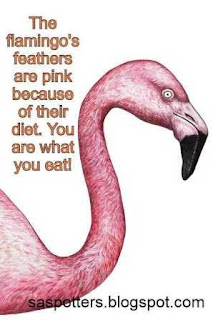 |
| Junk food has many disadvantages in schools. |
We have discussed why junk food is so prevalent in today's school system. It is time to look at the disadvantages that come with junk food - particularly within a school environment.
Disadvantages of junk food in schools
- Junk food reduces your ability to concentrate
- Junk food decreases your energy levels
- Junk food lowers your confidence by damaging your physical appearance
- Junk food hampers your taste for healthy food
- Junk food is highly addictive - the more you eat, the more you want
- Junk food increases your appetite
- Junk food can cause depression
- Junk food can cause hormonal imbalances
 |
| Junk food destroys your health. |
1. Junk food reduces your ability to concentrate
Junk food is high in Omega 6, but low on omega 3
Junk food, or highly processed food, contains a lot of hyper-heated plant oils. These oils have omega 6 fatty acids. We don't eat enough food that has omega 3 (like the oil naturally found in fish).Omega 6 and omega 3 balance each other out. If you have too much omega 6 from junk food, you will need even more omega 3. This leads to fatty acid imbalances that damage brain, heart and cardiovascular system.
Your brain needs omega 3 to function properly. Every time that you eat something high in fried plant oils that contain a lot of omega 6 (like junk food), the problem gets worse. This leads to reduced concentration, depression, low quality of sleep and the inability to retain new information.
 |
| Little actions cause big consequences. |
Other ingredients in junk food also destroy concentration in schools
This is not the only way that junk food limits mental function. Preservatives, artificial flavors, artificial colorants, flavor enhancers, sodium and sweeteners flood the brain with damaging toxins. Your brain first has to eliminate these toxins before it can function normally.The sugar from junk food stops your brain from working properly
Junk food is high in simple carbohydrates and sugar. It is low in fiber, vitamins, minerals and protein. Sugars and carbohydrates flood your body with sugar. This puts you on a sugar high that reduces your ability to sit down and focus.The problem only gets worse from there. Sugar pulls water out of the cells in your body - including your brain. This leads to mental fatigue and lethargy right from the start.
Your body will release insulin to stop this from happening. Insulin takes the sugar from your blood and shuttles it to various parts of the body so that sugar will stop damaging your cells. When insulin does this, your blood sugar drops. This leads to a sugar crash.
The resulting sugar crash will drain your energy levels to a lower point than they started. This creates the cycle of even more mental fatigue and lethargy. You can't concentrate because there is no sugar to give you energy and you crave more sugar to keep going. This is why sugar is so damaging to mental health - and why it becomes so addictive.
 |
| Too much sugar is killing us. |
If too much sugar is so bad for you, why do companies put so much sugar in their products?
The addictive nature of sugar is what boosts sales. We instinctively gravitate towards the food that has the most sugar. The more sugar companies can put in their products, the more sales they will make. Companies that don't use a lot of sugar or artificial junk in their products lose out on precious sales.2. Junk food decreases energy levels
We have already looked at how the sugar in junk food drops your energy levels every time that you eat it.
Artificial sweeteners destroy energy levels
Artificial sweeteners do the same. Sweeteners are more addictive than cocaine (and make you fatter than normal sugar). The addictive nature of artificial sweeteners encourage processed food manufacturers to add as much of it in junk food as possible.
When your tongue tastes something sweet, your brain expects a sugar rush from the fake sugar. It will lower your overall energy so that it doesn't have too much energy when the sugar rush kicks in. The sugar rush never happens.
This leaves your body in an energy-deficient state. It tries to make up for the loss of energy by craving more sugar to get back to a state of normal. This is why artificial sweeteners lower your energy and become so addictive.
 |
| Sweet now, bitter later |
Toxins drain your body of energy
Junk food and processed food is loaded with unnatural ingredients. Your body does not know what to do with these chemicals. It spends a lot of energy trying to eliminate them from your body.
The kidneys are overloaded with chemicals that it needs to take out of your blood stream. Beneficial gut bacteria (that turn nutrients into energy) are killed off by these toxins. It takes days to eliminate the toxins from one item of junk food.
Energy is depleted through the elimination of unnatural chemicals - and this energy could have been put to better use. If you eat more unhealthy food than what your body can eliminate, your energy levels get lower and lower.
We see this in the liver. Your liver has the important role of regulating blood sugar and turning fat into energy. It also has the important role of keeping your blood clean. When you load your body with toxins from unhealthy food, your liver is too preoccupied to produce the right amounts of energy.
That is how too much sugar leads to a fatty liver and, eventually, liver disease (like liver cirrhosis) and liver failure.
Toxins from junk food also damage the cells throughout your body. They are stored in muscle tissue, fat cells and the skin to prevent them from causing more damage. Your body has to eliminate all of these toxins before it can function normally again - but it can't do this when it is bombarded with more and more toxins.
 |
| You are what you eat. |
3. Junk food lowers confidence by damaging physical appearance
Confidence is everything. It is easier to learn new things when you are confident in your ability to do so. True confidence is rooted in who you are - and your physical appearance has a large impact on how you see yourself.
Toxins will destroy your skin, the sweeteners will increase your craving for sugar and sugar will be stored as fat whenever you eat too much of it. This is why junk food leads to dramatic weight gain.
Metabolism refers to your body's ability to turn fat into energy. When you are unhealthy, your body does not have the energy to burn fat (which requires complicated biological processes to burn - it is easier for the body to simply crave more sugar for direct energy).
As junk food slowly chips away at your health, your energy levels will drop and you will gain weight at a faster pace. Your skin will display the way that your body feels on the inside.
Your hormones will be even more imbalanced than usual (because your body has too many unnatural chemicals to regulate your hormones properly).
Hair, skin and nails become pale and brittle from too much sugar without enough protein. Weak muscles and joints diminish good posture. You get sick more often and you look worse after every episode of illness.
All of this, coupled with the depressing effects of junk food, will obliterate your sense of confidence and self-worth. It is hard to concentrate on other things when the black hole of self-pity begins to consume you.
4. Junk food hampers your taste for healthy food
Sugar is not bad when it is found in nature. One of the many positive roles that it has is that it tells us what is edible and what is not.
We gravitate towards food that has the most sugar (ketchup, mustard, mayonnaise, burger patties, pasta and rice are also loaded with added sugar to get you to eat more of it).
When you eat a lot of food with high amounts of added sugar, your taste buds adapt to that taste. You regard super sweet food as normal tasting food.
When your brain adapts to the sugar content of junk food, it won't recognize natural food (that has normal amounts of sugar) as edible. That is why it is so hard for people to eat fruit and vegetables when they first start out on a new diet - their brains don't think that it is real food!
The good news is that your taste buds renew themselves every 2 weeks. If you can tolerate a new eating plan for 14 days, your brain will recognize that as the new normal. If you stick to natural foods exclusively, junk food will taste so sweet that it actually puts you off.
I can't stomach the idea of more than a small piece of cake at social gatherings, for example. It's too sweet for me. I also actually enjoy the taste of fruit and vegetables now. At first, I hated it - but forced myself to get used to it because of the health benefits of fruit and vegetables.
 |
| Choose goodness. |
5. Junk food is highly addictive
We've already covered how the more artificial sweeteners you eat, the more you will crave.
You have also read about the fact that the more you flood your system with the sugar in junk food, the more your body will crave sugar for energy instead of making its own energy from fat.
The fat in junk food is also highly addictive. There are different types of fat. Some are good for you, some are not. Saturated fat is found in meats like fish, beef, port and fish. Monounsaturated fat is good for you. It comes from avocados and olives. Polyunsaturated fats are also healthy. Flax seeds and chia seeds are great sources of this kind of fat.
Trans fat is the worst kind of fat. It is the one that we should avoid at all costs. This kind of fat is chemically produced by adding hydrogen to plant oils. Despite its horrible health effects, it is highly addictive. You will find this fat in junk food.
Flavor enhancers and sodium (salt) are other ingredients in junk food that are extremely addictive while destroying your health.
 |
| Choose what builds you. |
Why is the unhealthy stuff addictive in junk food?
Healthy ingredients are typically not addictive because they strengthen the body. When your body is strengthened, it is better able to perform vital functions on its own. It's like the age-old saying: The mark of great leaders is how well their followers cope when they are not around.
Unhealthy food does the opposite. It takes your body into a worsened state of health. Your body will try to revert back to its previous state by adding back what the unhealthy food has taken away.
Added sugar lowers energy. Your body tries to get more energy with more sugar. Flavor enhancers take away the natural taste of food. Your body will crave more flavor enhancers to experience a sense of taste again. This is why poisons like alcohol and nicotine are so addictive.
6. Junk food increases your appetite
Junk food and processed food will make your body crave more food in a shorter period of time. Here's how:
Processed food is made to give you a fast sense of satisfaction. This helps it to sell more because people will learn to associate that food with a sense of fulfillment. Junk food fills you up quickly. It makes you feel like you've eaten a lot of good nutrients in a short amount of time. Think about how long it will take you to feel fulfilled from eating apples and pears.
You feel more satisfied because the nutrients move from your digestive system into your blood stream more quickly. That means that it does not last in your digestive system very long. Simple carbohydrates like processed grains, sugar, bread and pastries are absorbed very quickly.
The sooner food enters into your bloodstream, the shorter the amount of time that you digestive system feels empty again. Healthy foods contain fiber, resistant starch (carbohydrates that take longer to digest) and protein. These ingredients take longer to break down. This means that they sit in your digestive system for a longer period of time.
Your blood stream is not flooded with sugar (which prevents a sugar rush and the following sugar crash), but nutrients are consistently delivered into the blood over a long period of time.
This is why fruit and vegetables may not feel too fulfilling at first, but reduce hunger cravings for hours to come.
You will end up eating more when you eat junk food. Healthy food will keep you satisfied and give you the energy to go about your day for longer before you need to eat you next meal.
 |
| Share this image. |
7. Junk food can cause depression
The addictive roller coaster ride of junk food will take its toll on your mental health.
It is mentally draining to feel full of energy at one moment, but have nothing left within the space of a few hours.
The toxins from junk food stop the brain from dealing with its own emotions or memories because it spends too much of its time dealing with chemicals that shouldn't be there in the first place.
Most of your serotonin (a happiness hormone) is made by good gut bacteria. The preservatives in junk food kill good gut bacteria.
8. Junk food cases hormonal imbalances
The brain relies on hormones like cortisol (stress and energy), dopamine (pleasure and reward), melanin (rest and sleep), serotonin (happiness and comfort), endorphins (elation and pain relief), testosterone (energy and determination) and estrogen (energy storage) to balance its own mental state.
Omega 6 (and a lack of omega 3) stops the brain from regulating the body's hormone levels.
Too much or too little of any of these hormones can lead to disastrous mental health problems. Junk food messes with this balance in a variety of ways.
Hormones are used to farm animals so that they grow faster, sooner. They typically use the hormone estrogen to fatten them up, among other hormones.
When we consume a lot of estrogen, our brain stops producing its own estrogen to try to counteract it, or it lands up with too much estrogen.
Estrogen from food decreases the amount of testosterone that we produce (and women also need testosterone to function properly).
 |
| Mental health matters. |
Conclusion
If we want to give students the best future possible, we need to replace junk food with healthier alternatives. Stay Strong! |
| Support our website and buy these awesome Socks. |




























